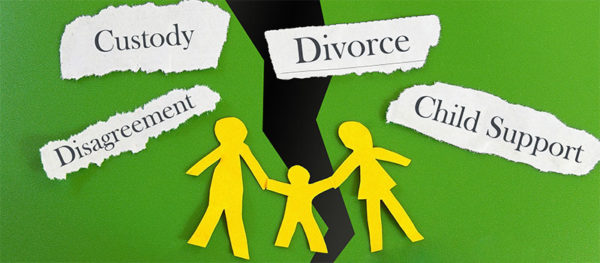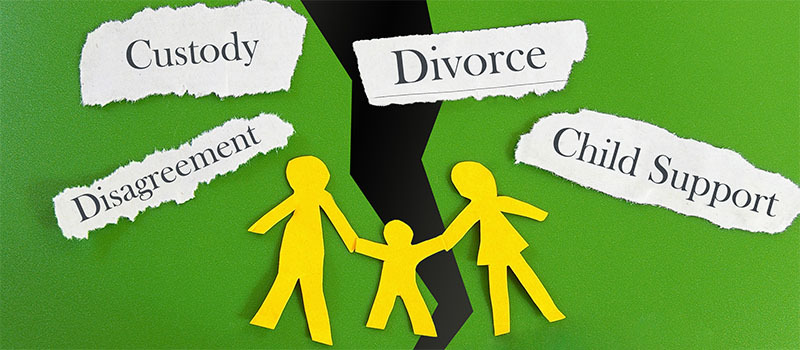
9 Common Factors of Divorce in Arizona, from Start to Finish
9 Common Factors of Divorce in Arizona, from Start to Finish
Many people who decide to divorce have never been in court and are unfamiliar with what to expect. If you want to end your marriage, you will have to go through the divorce process. While there are certain exceptions through which you might be able to get an annulment, most people will need to go through the divorce process to terminate their marriages.
In Arizona, this process is called a dissolution. When you go through the dissolution process, you will need to make decisions about many different issues, including community property, debt and asset division, spousal maintenance, child custody and visitation, and child support. By understanding the divorce process, you might be able to anticipate what to expect.
The attorneys at the Schill Law Group can help to guide you throughout the process and demystify it for you. Here is an overview of the stages of a divorce from its beginning to the end.
1. Filing the Petition for Dissolution
The first step to take when you want to get a divorce is to file the petition for dissolution. Under A.R.S. § 25-311, people must make sure to file their petitions for dissolution with the court that has jurisdiction to hear the matter.
Under A.R.S. § 25-312, one or both of the parties must have been domiciled or serving in the military in Arizona for at least 90 days at the time that the petition is filed. Your petition will be filed along with a summons and other documents, including a preliminary injunction, request for temporary orders, and others that apply to your situation. In your petition, you will list what you are requesting about property division, spousal maintenance, child custody and visitation, child support, and attorney’s fees and costs.
2. Service of Process and the Response
After your petition and other documents are filed, the court will issue a notice and summons to respond. You must serve copies of the petition, the summons, and any other legal documents that you have filed in the case of your spouse. You will be called the petitioner, and your spouse will be called the respondent. You can hire a private process server or use the sheriff’s department to serve your spouse.
However, if you can get your spouse to agree to waive service of the documents, he or she can sign a waiver that can be filed with the court. Once your spouse has been properly served with notice of your divorce, he or she will have time to file the response. If your spouse lives in Arizona, he or she will have to respond to your petition within 20 days of when he or she was served. If your spouse lives out of the state, he or she will have 30 days to file his or her response. Under Arizona law, the only defense to a petition for dissolution in a regular divorce is that the marriage is not irretrievably broken under A.R.S. § 25-314. If your spouse fails to respond to the petition after being properly served, the court can grant a default divorce decree after 60 days from the date of service.
3. Temporary Orders
In some cases, people will file requests for temporary orders or preliminary injunctions at the time that they file petitions for divorce under A.R.S. § 25-315. Either party can ask for temporary orders, including the respondents. These orders establish the rules for how different things will be handled while the divorce is still pending.
For example, you might ask for temporary orders for child custody and visitation, child support, who will remain in the house, who will be responsible for paying the bills, and spousal maintenance. A preliminary injunction might be issued by the court to restrain both you and your spouse from spoliating or disposing of the property before the divorce is completed.
It can take a few months before temporary orders are issued. If there is an emergency, a spouse can request emergency temporary orders that can be heard much faster.

4. The Discovery Process
Once the petition and response have been filed, the divorce case will move into the discovery phase. Both you and your spouse are entitled to receive information from each other about your assets and other relevant factors about your case.
The process for obtaining the needed information is called discovery. It can be a straightforward process in some cases. In others, it can be time-consuming and expensive. In most cases, the size and value of your estate and the length of your marriage can impact how much discovery is necessary.
The discovery phase might involve several procedures. Your lawyer will submit and receive information for you, but you will also need to provide input. Interrogatories are written lists of questions that you can send to your spouse. Your spouse can also send interrogatories to you. If you receive interrogatories, you must respond with written answers within a set period.
If you need certain documents that have not been provided to you, your attorney can file a request for the production of documents to secure them. Either you or your spouse can schedule a deposition. This is an out-of-court proceeding during which you, your spouse, and other witnesses may be asked questions under oath and in person. When a deposition is held, a court reporter will be present and will prepare a transcript of what occurred. The attorneys will ask the questions at a deposition.
In some cases, attorneys can complete discovery without resorting to the formal processes that have been described above. This is almost always less expensive and more efficient than going through a more formal process.
5. Negotiating a Settlement
Other than in cases that involve domestic violence, drug or alcohol abuse, child abuse, or people who are possibly hiding assets, it is often best to try to resolve a divorce case by negotiating a settlement agreement. People who can negotiate divorce settlements are often happier than those who leave the decisions up to the judge.
Negotiated settlements give the parties greater control and privacy. Spouses who reach negotiated settlements are likelier to comply with them than they are with orders from a court. If you reach a negotiated settlement with your spouse, you can file it in court. As long as the judge finds that your agreement is fair and conscionable, your settlement agreement will be a part of your final divorce decree.
Judges may sometimes order mediation to try to encourage the parties to settle their cases. In many cases, people can resolve many of their outstanding legal issues during mediation. Your lawyer can represent you during mediation. While he or she may recommend that you reject or accept a proposal to settle, the decision will be yours.
6. Divorce Trial
If you cannot reach a settlement agreement with your spouse, your divorce case will go to a divorce trial. At your trial, you will each be provided with the opportunity to present evidence, call witnesses, give testimony, and submit exhibits. You and your spouse will likely have to testify and to submit to cross-examination by the opposing attorney.
If your case does go to trial, it will likely be more expensive. In some cases, it might be the only way to reach an end to your marriage. You should keep in mind that trials are risky. Your attorney cannot predict the outcome for you. The judge will issue his or her orders as he or she understands the case. The judge will not know you or your spouse but will be given the power to tell you how to live your life after your divorce.
In some cases, a trial will not be the final step of a case. If you or your spouse are unhappy with what happened, either of you can file an appeal. If an appeal is filed, more time and expense will be involved. Appeals are also difficult to win.
7. Divorces with Children and Custody Issues
If your divorce will involve child custody issues for the minor children that you share with your spouse, you will have to file a petition for dissolution with minor children. For this type of divorce, you and your spouse will need to try to negotiate a parenting plan. If you cannot reach an agreement, you will each need to submit a proposed parenting plan to the court.
Child custody and visitation issues are frequently among the most contentious issues in divorce. They can also present added challenges for your attorney. While your lawyer is loyal to you, he or she also must keep the best interests of the children in mind.
Your parenting plan will include information about legal decision-making authority and parenting time for you and your spouse. Legal decision-making authority refers to which of you will have the ability to make decisions for your child’s religion, education, and medical care. Parenting time refers to where your child will reside and how much visitation time he or she will have with the other parent.
Legal decision-making authority and physical custody may both be either sole or shared. Your attorney can explain how this might look and advise you on the types of custody that might be most appropriate in your situation. Parents who are divorcing, with minor children, will also be required to attend parenting classes.

8. Determination of Child Support
Another issue that will be at play in a divorce with children in Arizona is child support. Under A.R.S. § 25-501, both parents are expected to contribute financially to the upbringing of their child. Arizona has child support guidelines for courts to use to determine the amount of support to order. This can help to make the amount of child support that you might have to pay or might receive more predictable.
9. Keeping the Best Interests of Your Children in Mind
If you cannot reach an agreement with your spouse about child custody issues, the court will follow the factors that are outlined under the best interests of the child standard in A.R.S. § 25-403. Regardless of whether you take your child custody issues to trial, you should conduct yourself in a way that will minimize the emotional harm to your children during and after your divorce.
Always put your children first. You should never try to use them as a weapon against your estranged spouse. Do not talk badly about your spouse to your children or in front of them to others. Encourage your children to spend a lot of time with your spouse. Remember that divorce is just as hard on children as it is on the adults.
However, children are less equipped to deal with the emotional conflicts and fallout that divorce can bring.
You should not introduce your children to your new romantic interest until they have had plenty of time to adjust to their new reality. You should also not take your children with you to your attorney’s office or the court. Be flexible and try to stick to the schedule that has been ordered or that you have created with your spouse.
Talk to your spouse about discipline issues and try to reach an agreement so that there can be continuity between both of your homes.
Complete Help from the Phoenix Divorce Lawyers at the Schill Law Group
Getting divorced is not easy for most people. If you want to end your marriage or have been served with a petition for divorce, contact the Schill Law Group for help and guidance through difficult times. Call us today at 480.525.8900 to schedule a consultation.



